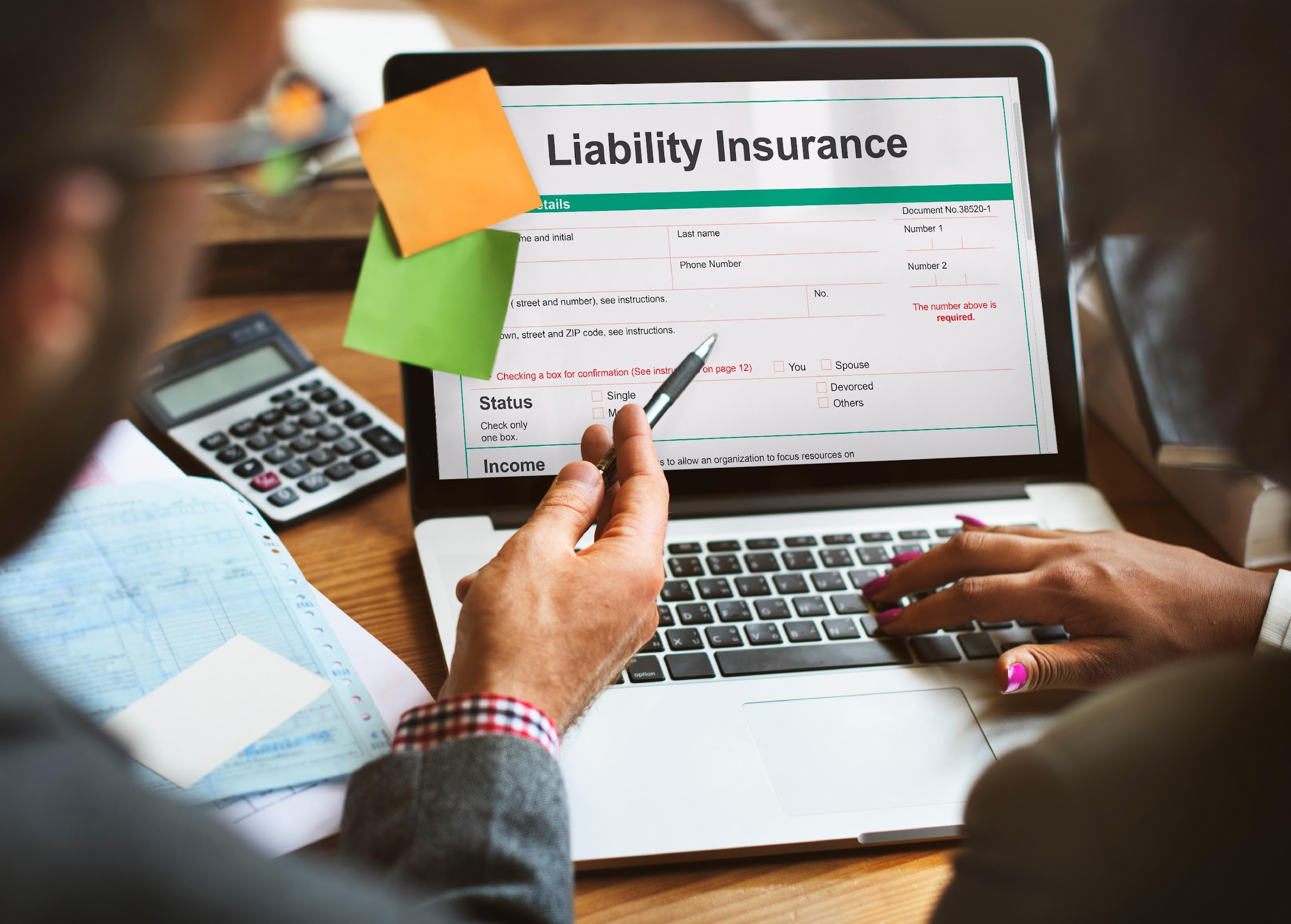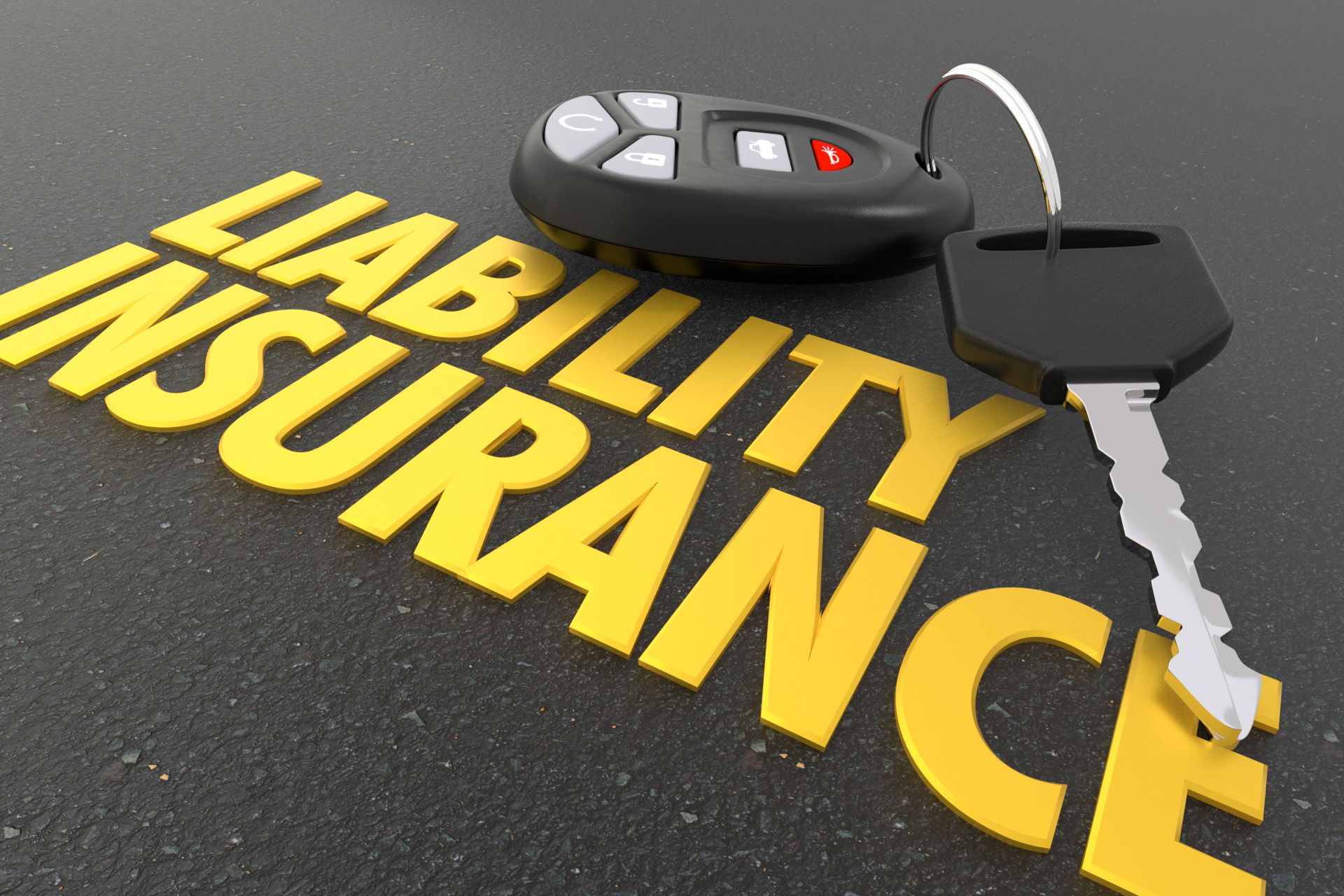Decoding Liability Insurance: Practical Tips and Tricks for First-Time Buyers!
It can be like discovering a new place when you get into the world of insurance. There's a lot to learn especially about liability insurance for beginners. This type of insurance is your invisible shield protecting you from unexpected expenses if you're ever found responsible for causing harm or damage to someone else. It's not just a piece of paper; it's peace of mind ensuring that an accident won't derail your financial stability.
Understanding liability insurance is crucial because it's all about being prepared. Life can throw curveballs; without the right coverage you could be left facing hefty bills alone. It's like having a plan B for life's "oops" moments. With the correct information and coverage you can navigate these surprises without fear knowing you're protected.
Trusted10.io is here to light the path for you. We are experts at simplifying otherwise difficult insurance concepts. To learn more about liability insurance read this piece first. Our goal is to empower you especially if you're stepping into the insurance market for the first time. By following our advice you will be able to choose the insurance policy that is tailor-made for your needs.
Understanding Liability Insurance
Liability insurance is vital because it helps pay for accidents when they're your fault. If something you do causes harm or damage to someone else this insurance can cover the costs.
When it comes to different events there are different kinds of risk insurance:
- General Liability: This is mainly for businesses. If someone gets hurt in a store or office like slipping on a wet floor this insurance helps pay for their injuries.
- Professional Liability: This is for people who give advice or services like doctors or architects. This insurance might provide compensation in the event that their services or recommendations lead to an issue.
- Product Liability: This is for making or selling products. If a product hurts someone or doesn't work right this insurance can help pay for the harm it causes.
Some things to remember:
- Coverage Limits: At most the insurance company will cover this amount. Think of it as a limit on how much help you can get for each accident.
- Deductibles: These are the costs you pay before the insurance starts paying. If you have a small accident you might pay them all yourself.
- Exclusions: These are things the insurance doesn't cover. It's good to know these so you won't be surprised later.
Knowing about liability insurance can help you choose the right one to protect you from big bills if an accident happens.

Tips for Saving Money on Liability Insurance
Looking to cut costs on your liability insurance without cutting corners on coverage? You're exactly where you need to be! If you want to be frugal and secure there are certain things you can do:
1. Shop Around: Compare Compare Compare!
Refrain from accepting the first quotation you get. Find out what other insurance providers have to offer by contacting them. Rates for the same coverage might vary significantly which could surprise you. Finding the greatest price that works for your budget and demands is the most important thing.
2. Bundle Up for Savings
Do you have insurance for your car your house or something else? Purchasing them all from the same company might be a good idea. This is called bundling and it can unlock discounts sometimes reducing your total insurance costs by a significant percentage. It's similar to purchasing in bulk; you may potentially save more money if you purchase more from the same supplier.
3. Raise Your Deductible
Expenses that you will need to pay for before your insurance begins to pay for them. If you agree to pay a higher deductible your monthly or yearly insurance cost called a premium can go down. Select a fee that you can easily pay if you ever need to file a claim.
4. Keep Your Credit Score Shiny
Your credit score can influence your insurance rates in most places. When you have good credit your rates are usually lower because the insurance company sees you as less of a risk. It's like having a good report card that helps you in the finance world and in reducing your insurance costs.
5. Don't Be Shy: Ask About Discounts
Insurance companies often have a variety of discounts that can reduce your premiums. These can be for anything from driving fewer miles having safety features on your car being a member of certain professional groups or even for students getting good grades. Always ask what discounts are available; you might qualify for more savings than you think.
Following these tips you can smartly save on your liability insurance without skimping on the necessary protection. Remember the goal is to balance cost savings with maintaining the right level of coverage for your peace of mind.
Choosing the Right Liability Insurance Policy
Finding the perfect liability insurance policy is like choosing the safety gear for a big adventure. You want something that fits just right and gives you the confidence to go about your daily activities knowing you're well protected. Following these procedures will ensure that you get the appropriate coverage:
1. Know Your Risks
Start by looking closely at your own or your business's activities. What could go wrong? You may have a pool at home and worry about guests getting injured or your business involves giving professional advice that could lead to financial loss for a client if something goes amiss. Once you have a good grasp of these dangers you may begin shopping for insurance that meets your needs.
2. Figure Out Your Coverage Needs
Think about everything that needs protection — your home savings or business assets. You'll want enough coverage to shield them if something happens but not so much that you're paying for protection you don't need. It's all about finding that sweet spot.
3. Check Out the Insurance Company
Before you buy a new tool or try a new place you might read reviews. Do the same thing before you choose an insurance company. Are they known for standing by their customers when a claim is made? Do they have a solid financial footing? These vital questions can help you choose a provider you can rely on.
4. Understand What You're Signing Up For
Insurance documents can be complex but knowing what you're getting into is crucial. Pay attention to the fine print including what's covered what's not (exclusions) and how much you'll need to pay out of pocket (your deductible) before your coverage kicks in. Feel free to ask questions if you need to know more about something.
Following these steps will help you feel more comfortable with the world of liability insurance and find a policy that meets your specific needs. Remember that the goal is to feel safe and secure knowing that you can handle anything life brings your way.

Purchasing and Managing Your Liability Insurance
Navigating the purchasing and management of your liability insurance journey can be manageable. With a clear roadmap you can secure the coverage you need and confidently handle any bumps along the way.
Buying Your Policy: Step by Step
- Do Your Homework: Start by exploring different insurance companies. Check out what they have to offer and how much it costs. Like when you're shopping for a new phone you want to get the most bang for your buck.
- Get the Quotes: Get quotations by contacting insurance companies or using internet resources. It's like getting estimates for a home repair; you want to know what it'll cost you.
- Compare Your Options: Put those quotes side by side. Verify the coverage and exclusions of each plan. Knowing the cost and what you're getting for it is essential.
- Understand Before You Commit: Before saying "yes" to a policy ensure you fully understand it. Know what it covers what it doesn’t (exclusions) how much you’ll pay if you need to use it (deductible) and the maximum it will pay out (coverage limits).
Managing Your Policy
- Know Your Policy Inside Out: Take some time to get to know your policy. It might not be the most exciting read but understanding what you're covered for and what you're not can save you many headaches later.
- When You Need to Claim: If something happens and you need to use your insurance contact your insurer as soon as possible. Verify that you have gathered all the necessary evidence to support your assertion.
- Keep Your Policy Up to Date: The things you need insured and the way you live are subject to change. Maybe you’ve moved to a new house or your business has grown. Verify that your insurance coverage is current. Review and update your policy periodically to make sure it still meets your needs.
By keeping these pointers in mind you can make purchasing and managing your liability insurance smooth and straightforward. It’s all about staying informed being prepared and keeping your coverage aligned with your life’s changes.
Special Considerations for Specific Industries and Occupations
Regarding liability insurance think of it as picking out the right gear for a particular job. Different jobs need different tools and it's the same with insurance. As a worker you should take these procedures to ensure that you have the right insurance:
Particular Jobs Need Special Insurance:
- Different Jobs Different Risks: Every job is unique. For example doctors need to be careful because if something goes wrong with a patient's treatment they might get blamed. Lawyers must also watch out for people unhappy with their advice. Builders must be careful that nothing gets broken or that no one gets hurt while working.
- Special Insurance for Special Jobs: Just like some jobs need special tools others need special insurance. Doctors have something called malpractice insurance. This helps if a patient says the doctor made a mistake. Like consultants people who advise their job have errors and omissions insurance. This helps if someone isn't happy with their advice.
Rules for Different Jobs:
- Every Job Has Rules: Just like there are rules in games there are rules for different jobs. These rules can change what insurance you need. Some jobs require certain insurance to work. It's important to know these rules so you have the right insurance.
Like stocking your toolbox with the proper equipment choosing the correct liability insurance for your profession is essential. It makes sure you're protected and prepared for everything your career brings.
Navigating Common Liability Insurance Challenges
Finding a way to save money on liability insurance could seem like negotiating a twisty labyrinth. But don't worry; you can smoothly overcome these hurdles with some savvy strategies. Some of the most typical issues and their solutions are as follows:
1: Fixing Coverage Gaps and Overlaps
Imagine your insurance coverage as a series of puzzle pieces. Sometimes pieces might be missing (gaps) or two pieces might cover the same spot (overlaps). You'll want to lay out your puzzle — that is review all your insurance policies — to see the whole picture. Find the pieces you need to protect yourself fully if there are gaps. If there are overlaps consider adjusting your coverage to eliminate redundancies. This way you ensure that every area that needs protection is covered just right without paying extra for coverage you don't need.
2: Resolving Disputes with Your Insurance Provider
Disagreements or misunderstandings with your insurance company can happen. The most important thing is to keep careful records of all the contacts and papers that have to do with your policy. If there's an issue try to resolve it by talking it out clearly and calmly. You need to formally notify the business if that fails. You should see an attorney if you are still in need of legal representation. Remember staying organized and informed is your best defense.
3: Dealing with Insurance in Business Deals
In the business world liability insurance isn't just about protecting your company; it's also a key player in deals and contracts. Insurance can safeguard all parties involved whether you're forming partnerships entering into contracts or involved in mergers. Make sure that any contract you sign includes clear terms about insurance — who needs it how much and what types. This clarity upfront can prevent many headaches and disputes down the line.
You can handle these liability insurance problems well if you stay engaged and aware. Remember it's all about ensuring you have the right protection in place keeping open lines of communication and understanding the role of insurance in your business dealings. If you stick to these guidelines you shouldn't have any trouble dealing with insurance issues.
Conclusion
We've talked a lot about tips for buying liability insurance and here's a quick reminder of what we covered. We learned about liability insurance its importance and how to pick the right one for you. We also discussed how to save money on it and ensure it keeps working well for you.
Now it's your turn to make a smart move. Getting the right insurance means you won't worry as much if something unexpected happens. Knowing you don't need something is better than knowing you do.
And remember Trusted10.io is always here to help you out. We've got lots of helpful information if you're looking for more tips or need some advice on insurance. We always try to make insurance easier to understand so you can feel good about your choices.
